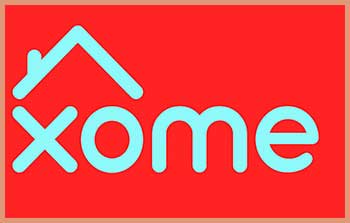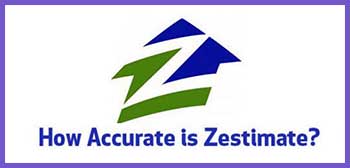If you’re in the housing market, getting an accurate estimate of your home’s value is crucial. Two popular automated valuation models (AVMs) that provide home value estimates are Xome and Zestimate. But how precise are these online tools?
And which one gives a more reliable valuation? This comprehensive guide examines Xome and Zestimate’s features, pros, cons, and accuracy to help you determine which home value estimator best fits your needs.
A Brief Comparison Table
| Feature | Xome | Zestimate |
| Home Value Estimate Type | Xome Estimate – Single value point | Zestimate – Value range |
| Data Factors | Public records, MLS listings, economic models | Public data, tax records, MLS data, prior sales |
| Customizable Inputs | Yes – update home facts like beds/baths, renovations | Limited – primarily beds/baths |
| Value History | No | Yes, goes back to 1996 |
| Accuracy | 90% within 10% of appraised value (5% average error) | 67% within 10% of appraised value (7% average error) |
| Value Forecasting | Yes | No |
| Comp Reports | Paid version available | Paid Zestimate Premier Agent required |
| Platform | Xome website and mobile app | Zillow listings |
| Cost | Free estimate, paid for reports | Free estimate, paid for Zestimate Premier Agent |
What Is Xome?
Xome provides home valuations and other real estate services through an online platform and mobile app. Their home value estimates, known as Xome Estimates, are generated by an AVM that incorporates public record data, MLS listings, and economic modeling.

Some key features of Xome include:
- Value Explorer – Xome’s value estimator tool that provides a value range estimate for a specific property address.
- Customizable Inputs – Users can update details on property attributes like square footage, beds/baths, and renovations to potentially increase a home’s value estimate accuracy.
- Value Forecasting – Predicts where a home’s value could be headed over the next 5 years using housing market analytics.
- Custom Reports – Paid report options provide more comprehensive valuation details, including comparable sold homes analysis.
- User-Friendly Platform – Easy to navigate dashboard and mobile app. Integrates with Multiple Listing Services (MLS).
What Is Zestimate?

Zestimate is Zillow’s automated home valuation model. It generates a Zestimate home value using the property’s location, tax assessments, prior transactions, and MLS data.
Notable features of Zestimate include:
- Zestimate home value displayed on all Zillow property listings.
- Value range (high and low end) provided.
- Zestimates updated frequently as new data enters algorithms.
- Accounts for home facts like square footage and bed/bath count.
- Value history going back to 1996.
- Option to claim property and update facts to refine accuracy.
- Zestimate Premier Agent – paid report with more valuation details.
Pros And Cons Of Xome And Zestimate
Xome Pros
- Provides a mid-point estimate value rather than a range for more definitive valuation.
- Accuracy verified by third parties based on low average error rate.
- Detailed comparable sales reports available in paid products.
- Factors in school district ratings for impact on home values.
- Value forecasting uses leading indicators to project market trends.
- Customizable inputs allow user adjustments for renovations, home attributes.
- Integrates with MLS platforms for seamless data updates.
Xome Cons
- Only provides estimate for a single property address at a time.
- Limited public data factored in compared to Zestimate.
- Must pay for comprehensive valuation reports.
- Not displayed on real estate sites, only available through Xome direct.
- Accuracy still dependent on user verifying all home facts are correct.
Zestimate Pros
- Estimates easily accessible right on Zillow listings.
- Value history shows market trends over decades.
- Provides low to high range versus single value point.
- Frequent automatic updates as new data enters algorithms.
- Factors in tax assessment records and prior transactions.
- Option to update home facts improves accuracy.
Zestimate Cons
- Accuracy depends heavily on user verifying all data is correct.
- Not as customizable as Xome – can’t adjust for renovations.
- Just an estimate, not an appraisal. Significant error margin persists.
- Does not consider school district ratings.
- Preferred Premier Agent report requires paid subscription.
- Site traffic biases estimates higher than actual value.
Also Read: Choose Between Xome And Zillow.
Xome Vs. Zestimate Accuracy
Independent studies evaluate the accuracy of AVMs like Xome and Zestimate by comparing their estimates to actual appraised home values. Here is how the two stack up:
- Xome – Average error rate of 5% based on third-party testing across metro markets. 90% of valuations within 10% of appraisals.
- Zestimate – Mean error rate of 7% according to Zillow. 67% of estimates within 10% of appraised values.
While both tools offer reasonably reliable ballpark estimates, Xome appears to edge out Zestimate in independent accuracy assessments. However, no AVM can match the precision of an in-person appraisal by a licensed professional.
Factors like unusual home attributes, renovations, and volatile markets reduce AVM accuracy. User input mistakes on home facts can also skew results. Verifying all data is complete and correct leads to the most precise estimates.
Which Is Better For Home Sellers?
For home sellers, choosing the AVM with the right features and credibility can impact selling outcomes. Consider the following:
- Xome offers seller-friendly value forecasts to time listings optimally.
- Zestimate’s high visibility on Zillow gets more eyes on your home.
- Xome allows for adjustments like renovations to boost value.
- Zestimate’s value range shows buyers where negotiating room exists.
- Xome integrates with MLS platforms realtors use most.
- Premier Agent reports provide sellers deeper insight.
Sellers needing to estimate renovation payback or set a listing price may prefer Xome. Those wanting maximum exposure could benefit from Zestimate on Zillow’s high-traffic platform.
Which Is Better For Home Buyers?
Both Xome and Zestimate offer home shoppers useful perks:
- Quickly gauge potential listing prices and value comparisons.
- Identify under or overpriced properties.
- Establish a baseline for making competitive offers.
- Get an estimate without scheduling an appraisal.
- Track price changes and market trends.
- Low-commitment way to assess homes of interest.
Key advantages for buyers include Xome’s accuracy and forecasting abilities. Zestimate’s visibility provides helpful data points on homes for sale. Savvy buyers could use both estimates to validate pricing and negotiate better deals.
Also watch the video about Zestimate!
Frequently Asked Questions (FAQ)
Based on third-party accuracy assessments, Xome currently rates as the most accurate AVM. However, no automated tool beats an appraisal done by a licensed professional.
Zillow is the most used real estate website, thanks largely to its Zestimates. But buyer traffic doesn’t equate to valuation accuracy. Xome offers greater precision, though less visibility.
Per Zillow, 67% of Zestimates are within 10% of appraised value. Significant gaps can exist due to outdated data or atypical home features not captured in the algorithm. Zestimates offer helpful ballpark figures but lack appraisal precision.
The average Zestimate home value has a 7% margin of error compared to appraisals. Accuracy improves significantly when users verify all property facts are current. Still, Zestimates should be considered estimates, not a substitute for appraisals.
Also Read: Differnces Between Yelp And HomeAdvisor.
The Bottom Line
Online home value estimators like Xome and Zestimate offer convenient ballpark estimates. Of the two, Xome appears to achieve slightly better accuracy. However, no AVM can rival an appraiser’s assessment.
Savvy home buyers and sellers should leverage AVMs for useful valuation insights. But critical decisions require validated figures only a professional appraisal can deliver. Regard AVMs as starting points for deeper due diligence on a property’s true market value.
